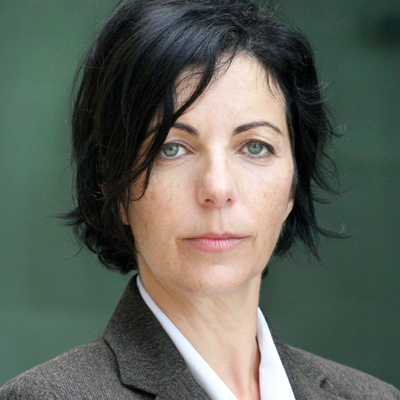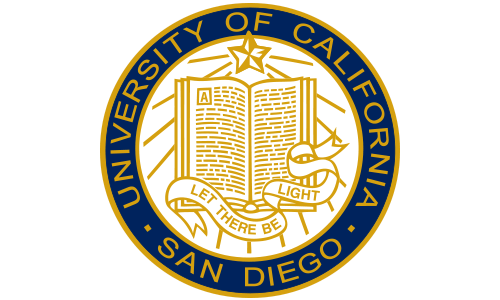Tackling society's ills by learning why we behave the way we do
Dr. Ayelet Gneezy of the Rady School of Management at University of California, San Diego, leads a myriad of human behavior research programs focusing on understanding the factors and motivations underlying undesired behaviors such as lack of savings, poor nutrition and health, and waste. She then uses her research findings to design and test ways to promote positive behavior that would improve the well-being of individuals from all walks of life. Her interest covers a wide area of behaviors and challenges such as poverty, preventative healthcare, sustainable behavior and prosocial behavior/charitable giving. Her research also explores means to increase the effectiveness of programs aimed to address various social challenges both in the US and in the developing world.
-
Dr. Gneezy has found that although equipped with the best intentions, charitable organizations and nonprofits often time launch programs that do not take into consideration the human factor--discovering why people behave as they do and what are the barriers for changing those behaviors.
-
As part of her research, Dr. Gneezy is exploring ways to increase individuals' engagement in charitable giving and boost the effectiveness of these nonprofit programs. She recently published a paper in which she shows that potential donors tend to avoid charities that dedicate a high percentage of expenses to overhead costs, which in turn limits the ability of nonprofits to be effective. Importantly, her findings show that this 'overhead aversion' is driven by individuals' decreased sense of impact when their donations cover various administrative costs instead of funding the "actual" cause. Using a laboratory and a large scale field experiment with 40,0000 potential donors, conducted in collaboration with a national non-profit focused on education, Dr. Gneezy's team proposed a solution to this problem: Use donations from major philanthropists to cover overhead expenses and offer potential donors an overhead-free donation opportunity. They found that this solution significantly increases the donation rate and total donations when compared with other fundraising approaches traditionally used by non-profits.
-
Dr. Gneezy is currently working with organizations that focus on the adoption and sustained use of new technologies in rural areas. Her goal is not to just help distribute new technologies but to discover ways to get individuals to actually use these technologies in the long-run.
-
Dr. Gneezy's well-being studies includes working with family health centers in San Diego in order to address increasing individual medical treatment and medication adherence, and delving into why underweight people's health might be at higher risk relative to overweight individuals.
-
Dr. Gneezy is also working with a group of Maasai Villages (the Kuku Group Ranch) to promote family planning practices. In the long-run, this program will address other challenges such as FGC and girl-child marriage via education and empowerment.
Dr. Gneezy's research assists policy makers, organizations, and companies who desire a better understanding of how people think, to learn what does and doesn't motivate people to change behavior for the better, and who wish to use this knowledge to benefit society.
Bio
Before Dr. Gneezy obtained her M.B.A., a career influencing "aha moment" occurred when she went on vacation and saw the card in the hotel bathroom asking guests to reuse towels to help the environment. She thought, "You must think I'm an idiot. This is simply a way for you to reduce costs and increase your bottom line." That's when she became interested in the interaction between companies and people. This experience, and others that followed, is what ultimately led Dr. Gneezy to a career focused on understanding consumer reasoning, trust, and revenge. But as the years went by, Dr. Gneezy started gravitating towards what she considers important, substantial questions that impact society. She started teaching a class on social entrepreneurship, which exposed her to a world of overwhelming social challenges. It was then when she realized that her training and years of experience understanding human behavior could be put to great use, and make meaningful impact.
Her research has been published in a number of leading academic journals, including Science, PNAS, the Journal of Marketing Research, and the Journal of Consumer Research, and has been covered in media outlets such as The Wall Street Journal, the New York Times, Scientific American, and the Atlantic.
Dr. Gneezy received her Ph.D. in Marketing from the Booth School of Business at the University of Chicago, immediately after which she joined the Rady School of Management at UCSD. Prior to obtaining her Ph.D., Gneezy earned an M.B.A. in the Netherlands, and then returned to Israel to manage the strategic planning department in DataPro Proximity (a subsidiary of BBDO Worldwide).
In the News
Rady School of Management
The Washington Post
The New York Times
Publications
Awards
MSI Young Scholar, 2013
Winner: Robert B. Cialdini Award, 2012
for excellence in a published field study for "Shared Social Responsibility: A Field Experiment in Pay What-You-Want Pricing and Charitable Giving"


